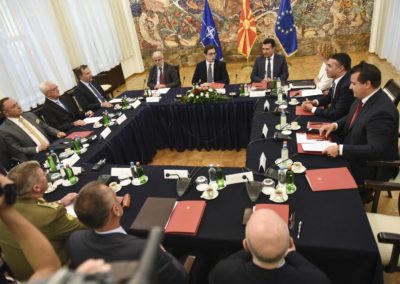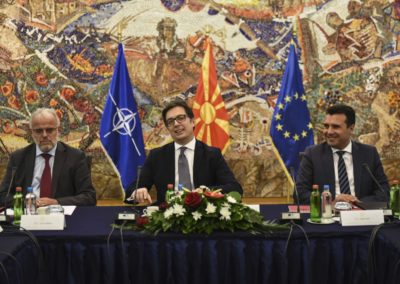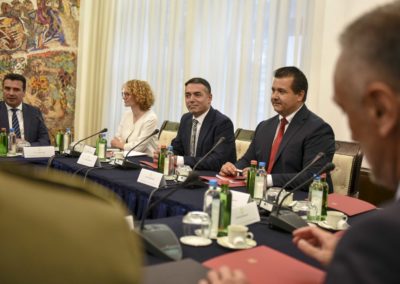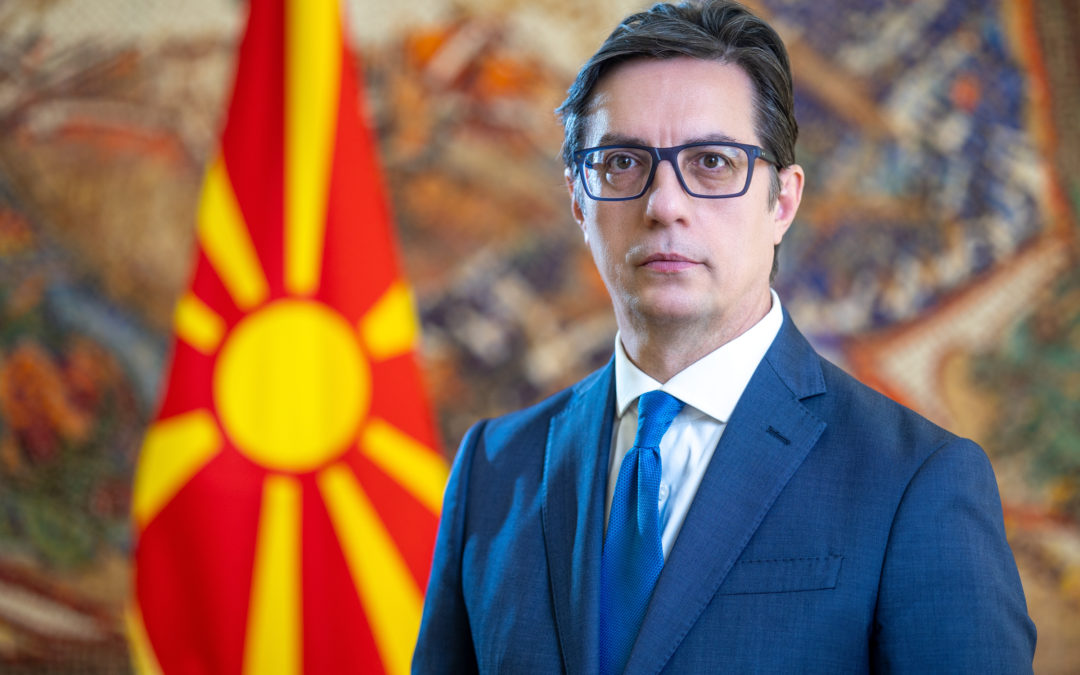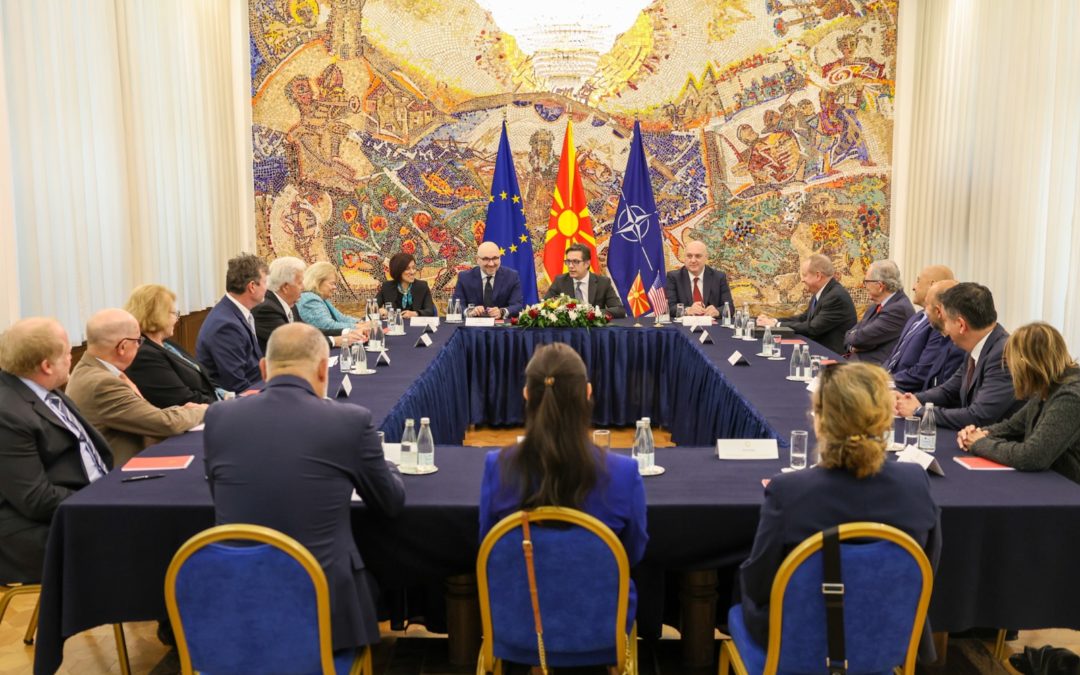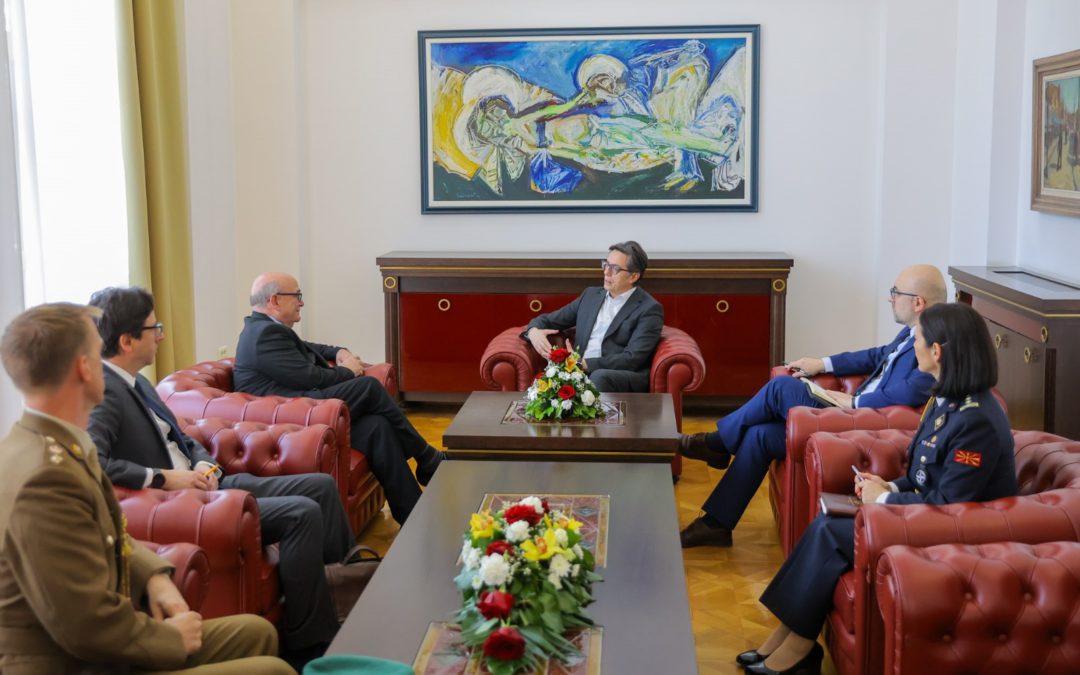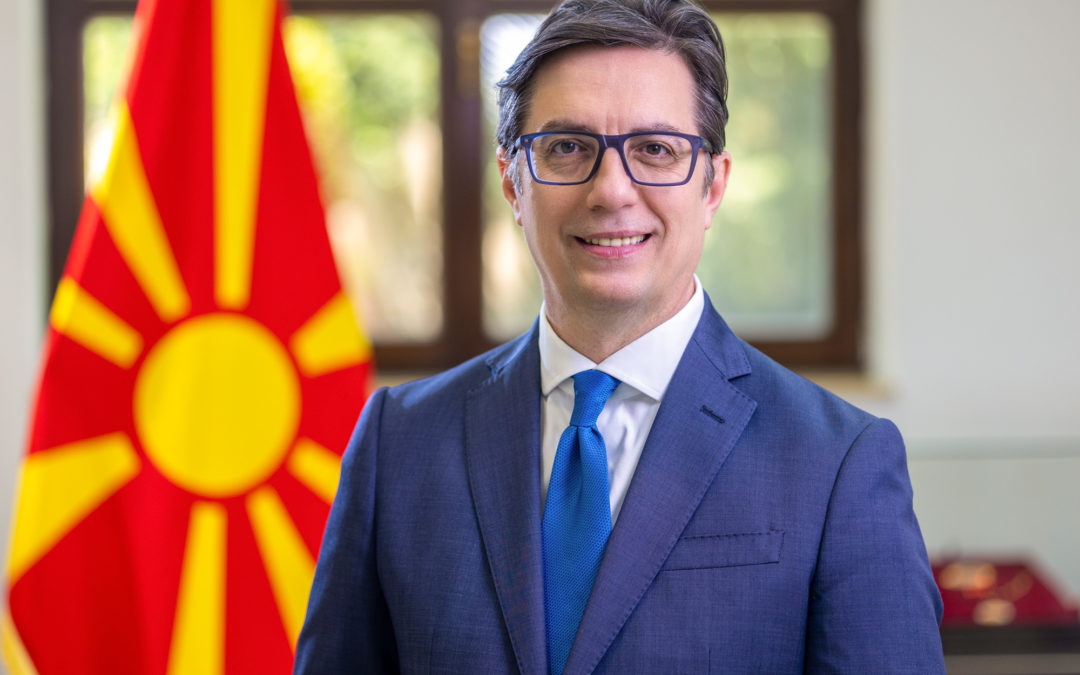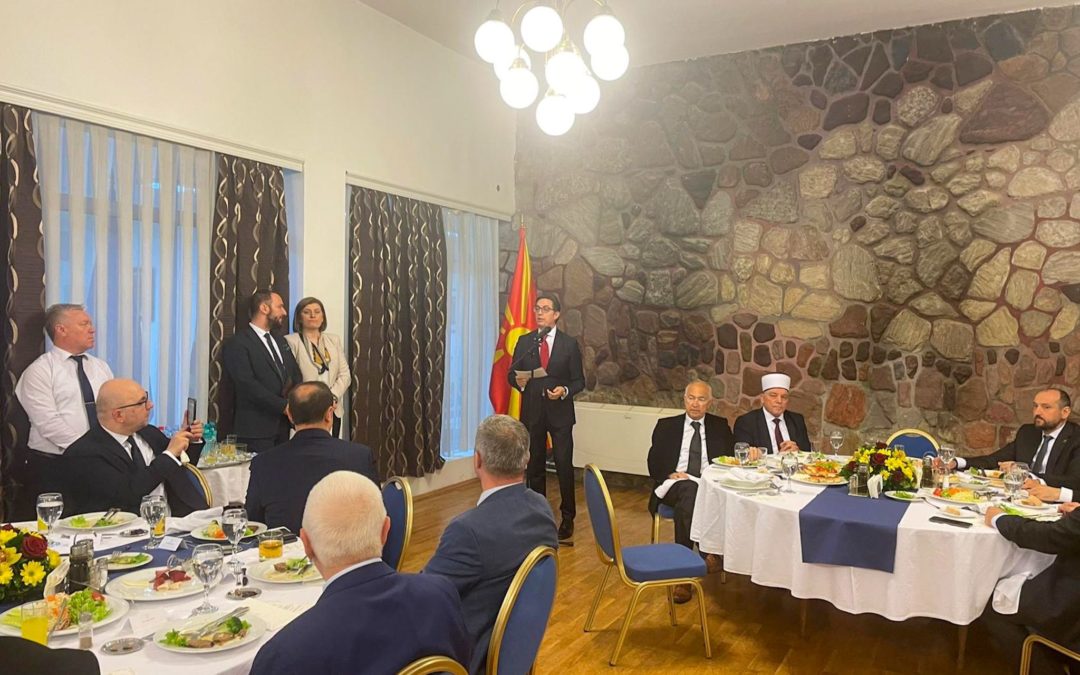The Constituting Session of the Security Council was held today in the Cabinet of the President of the Republic of North Macedonia. As President Pendarovski said, this is the first session of the Security Council after three years, which is a constitutional category and extremely important body, but, due to lack of political will, the Council was marginalized and forgotten.
The participants of the meeting stated that the situation in the country and the region is stable and so far there is no indication that the borders or the integrity and sovereignty of North Macedonia would be endangered. All relevant institutions are constantly monitoring the situations that could potentially grow into a more serious problem, such as the migrant crisis.
The session was attended by the permanent members of the Council: the President of the Government of the Republic of North Macedonia, Zoran Zaev, the Speaker of the Parliament, Talat Xhaferi, the Ministers of Defense, Radmila Sekerinska, and Interior, Oliver Spasovski, and the Foreign Minister, Nikola Dimitrov. Also attending were the Council members appointed by President Pendarovski: professors Nenad Markovic, Veton Ljatifi and Trajan Gocevski.
The Director of the Intelligence Agency, Erold Musliu, the Director of the National Security Agency, Viktor Dimovski and the Deputy Chief of General Staff, Major General Azim Nuredin, were also invited today by the President of the Security Council.
The President of VMRO – DPMNE, Hristijan Mickoski, was also invited to participate. By now, as President Pendarovski stated, though duly invited in writing, there is no answer as to why the VMRO-DPMNE leader did not attend the Security Council session.
“I think that representatives of the opposition, especially of the largest, most relevant opposition parties, must attend Security Council meetings at the invitation of the President, because the Council is not a private institution of the President as private and party affairs are not discussed at the sessions. The topic of today’s session is not only about the government coalition, but is essential for the security of the state. The topic of today’s session is the security situation inside our country, the Republic of North Macedonia and the region. So, my task was to invite all those who must be informed thereof, regardless of who is in power and who is in opposition”, President Pendarovski said.
The Republic of North Macedonia, President Pendarovski said, is a step away of full-fledged membership in NATO and getting a date for the start of negotiations with the EU. NATO accession is moving in a good direction and with a good pace, but the situation needs to be carefully monitored.
Answering journalist questions, President Pendarovski also referred to the developments in the region, pointing out that the influential international factors are receiving information about a possible revival of the Belgrade-Pristina dialogue that may affect the situation in the Western Balkans. The Republic of North Macedonia borders with both these countries and therefore, the President stressed, we should be prepared for anything that may possibly occur during the negotiations. It means explaining our position and which solution would be most positive for us as a country.
During the Security Council session, Deputy Chief of Army Staff, Major General Azim Nuredin, stressed the Army’s commitment and contribution to NATO-led peacekeeping operations, such as “Resolute Support” in Afghanistan, the United Nations peacekeeping operation, UNIFIL, in Lebanon, as well as the Althea mission in Bosnia and Herzegovina.
The Director of the Intelligence Agency, Erold Musliu, informed that the Agency continuously identifies security threats and potential risks to national security and informs the state leadership and other relevant bodies in the country.
At the session, Viktor Dimovski, Director of the National Security Agency, introduced the members of the Security Council with the reforms implemented in the security and intelligence structures, as well as with the first activities of the newly established Agency.
At the meeting, it was agreed that the Security Council should meet every two to three months, as it is necessary to regularly exchange views on the security situation.
